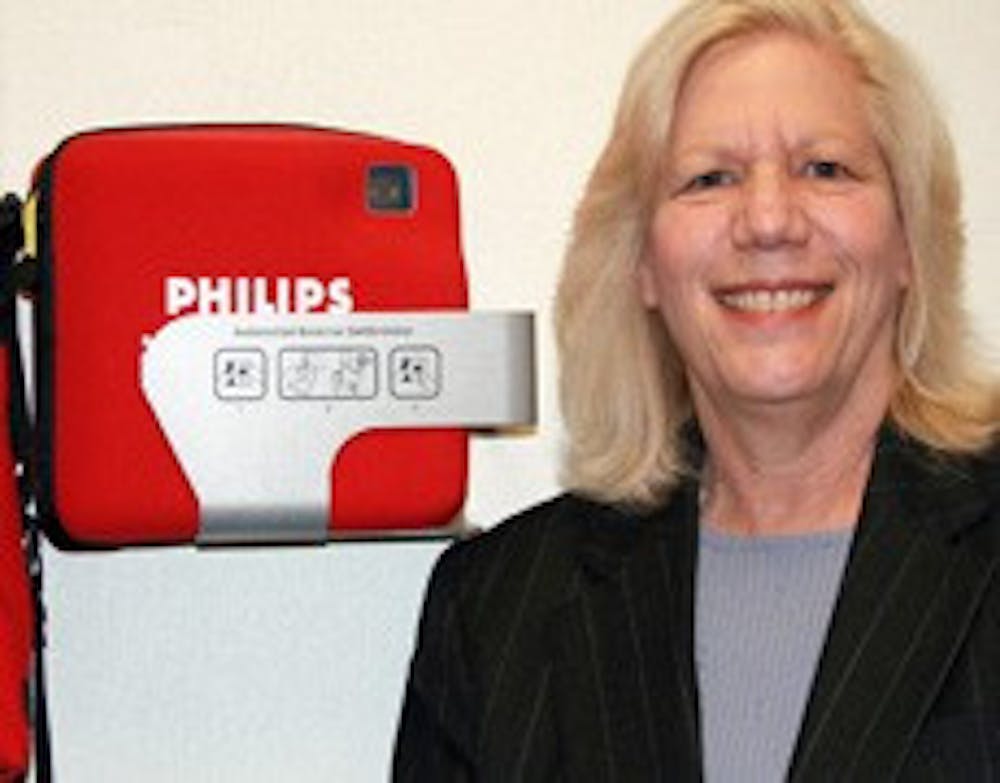PHOENIX — When someone suffers cardiac arrest, timing is everything. That's the reasoning behind legislation signed into law this week that will exempt good Samaritans from civil liability when they use automated external defibrillators to help those who suffer heart attacks.
Supporters say the measure will save lives because people won't have to worry about lawsuits when faced with having to use AEDs, which are bolted to the walls in schools and many office buildings.
"We wanted to make sure that anyone who acts to help somebody won't have to worry about any liability," said Sen. Barbara Leff, R-Paradise Valley, sponsor of the bill signed Monday by Gov. Janet Napolitano. "No one should ever hesitate to save somebody's life."
Leff said she drafted the measure, SB 1141, at the request of the Arizona chapter of the American Heart Association.
Tim Vaske, the association's director of government affairs, said that he approached Leff with the idea because quick responses to heart attacks are proven to save lives.
"Studies have shown that if you administer the shock to someone within the first minute of cardiac arrest, the survival rate is as high as 90 percent," Vaske said.
Vaske said an AED can only help someone who's suffered a heart attack, not harm them. The devices test whether someone needs a shock and play recorded instructions that walk users through their operation. It's impossible to accidentally shock someone, he said.
"It will only shock you if you have an abnormal heart rhythm or if you have no heartbeat at all," Vaske said.
Beth Moser, director of operations for Safety On Site Training, an Arizona company that sells AEDs and trains people on their use, said she's happy to see the burden of civil liability removed from people who might use one of her devices to save somebody's life.
Moser added that although the devices are safe for use by anyone, training can help people overcome a hesitation to use one.
"Only in taking an AED class and understanding the mechanics of the machine can a lay person understand that it won't shock someone unless they need it," Moser said.
Laws that protect untrained individuals who use AEDs from civil liability are in place in several states, including Michigan, Minnesota, Florida and Alaska.
The devices typically range in cost from $1,500 to $2,000, but can be as cheap as $1,000 and as expensive as $3,000.




